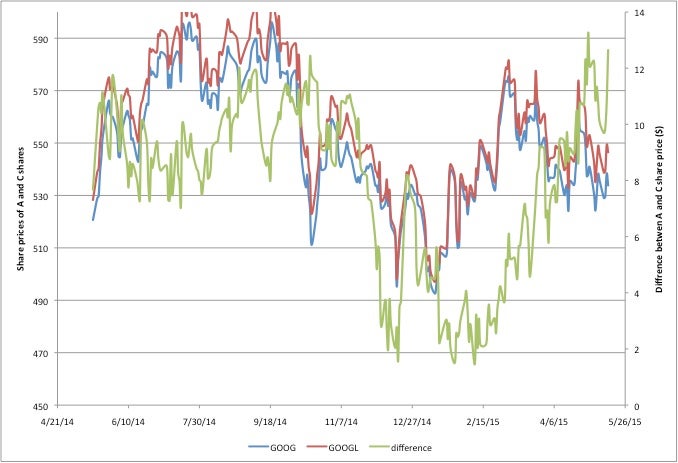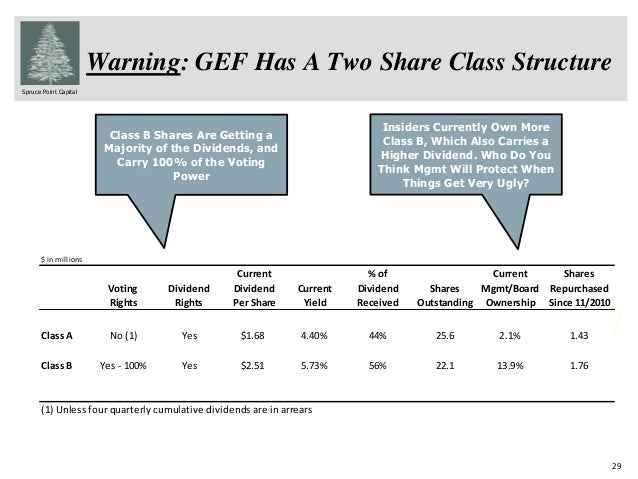Class a and class b shares dividends
Ok, so my first time on the forum, play nice! I have recently formed a Ltd company in the UK with a colleague of mine. When paying out dividends, each current class of share must receive the same dividend, correct?
What we would like to be able to do, is weight dividend payouts so contributions to projects can be translated into dividends. I have spoken with an accountant who I will be using for our end of year accounts.
They have stated, creating a second class of share would allow us to be paid different amounts in terms of the dividend payouts. Are we able to reduce the value of the current share class to a very low figure, and then use the new class of shares that we can use to adapt to our situation? I just want to make sure everything is set in place from the beginning. Sorry I'm not up to speed with all the technical terms. I appreciate any help and corrections!
Perhaps you should find an accountant you trust. All shares within the same class rank equally for dividend.

Thus if you wish to pay a different dividend to each member then each member must hold a different class of share. You would pass a resolution to create a new class of share and then one of you would do a share for share exchange.
I.C.S.E. Maths - Shares & Dividends - Class 9 & 10If you treat dividends as a way of rewarding members for the work they do rather then as a return on their investment please do not be surprised if HMRC try to do the same. The problem with your proposal is you may find it challenged by HMRC somewhere down the line. This may be a couple of years from now but they would look to recover any tax lost, plus interest.
There could be other costs too. Forming a couple of companies as an alternative also presents problems with ir One solution would be to hold shares in proportion to the input value of the person.

The problem with this is control: In addition if someone does not put their weight then it becomes a huge problem. The best way to deal with this one is probably to create two further share classes. As there may well be a dispute between you at some future time as to the contributions you are each making I would also suggest you get a solicitor experienced in commercial matters to draw up a shareholder agreement while you aere still on good terms with each other.
The accountant comes highly recommended from a friend of mine who has a high business turnover, and has been able to help him on a number of levels.
Why would a company have multiple share classes, and what are super voting shares?
The company provides architectural support services: CAD drawing, visualisations etc. So, from what I can gather, creating the different classes of shares if set up and administered by people who know what they are doing B and C, each subscribed to by one of the two directors, will allow us to make dividend payments for each director. Can the separate classes of shares be varied each time in terms of their value or are they set in stone when you create them? And one of the comments stated I might have problems in terms of rewarding directors for contributions - you mean they would see it as a bonus and tax it accordingly, rather than, as you said , a return on investment?
Common Stock vs. Preferred Stock, and Stock Classes - ditycapylal.web.fc2.com
I'm hearing from my accountant next week, so I really appreciate all the info from you all. It's great to be able to have some kind of an understanding before I enter into the unknown! Selling out eventially at much lower Capital gains tax Rates could in the vright circuimstances bre an attractive proposition. However please do not lose sight of the benefits of paying reasonable salaries and building up a decent second state pension.
Also, in view of the personal nature of much of the work it could be advisable to insure against long term sickness. I know that such claims are fairly rare but even in my small practice I have had more than one client very glad to have a decent non taxable income after being on such insurance benefits for 15 or 20 years up to state retirement age.
I will definitely take what you have said on board. I think it is important to think about the insurance side of things as well as a pension, and how we will handle profits in the future.
If my personal income can get near to k I would be happy to have the problem of whether to leave the extra money in the company or not! I appreciate the advice. All it takes is a resolution. You are doing it for sound commercial reasons and there would seem to be no improved tax benefit to the individual shareholders so whilst HMRC could be difficult I don't see why it can't be done.
Lots of people have. I've recently done this for an offshore company one of whose shareholders in UK resident he wasn't when the company was set up and HMRC rubber stamped it when we told them about it.
It isn't just HMRC that are concerned but the appropriate documentation has to be filed at COMPANIES hOUSE. I would like to think people would know that the info on the resolution has to go to CH.
You also have to file a return setting out the changes. Resources Podcasts About AccountingWEB Advertise on AccountingWEB Terms of use Privacy policy Contact us Got a question? Latest Any Answers Disclosure in accounts re financing.
Bombardier Inc. Dividends - Bombardier
AIAs on rolled over fixed plant and machinery. Open to challenge The problem with your proposal is you may find it challenged by HMRC somewhere down the line.
Mr seen it all before. Think about what happens when either one of you want to leave th or whether you will always want to pay out all available after tax profits as dividend.
What's all this about? James you may think its obvious but the originator of the stream admitted he was a bit raw. Please login or register to join the discussion.
VAT on distance selling 21st Jun Another case of a big tax liability from thin air 21st Jun National Insurance Contributions Bill 21st Jun Most read this week 15th Jun Reasonable excuse round-up How innovation fuels Tayabali Tomlin.

We are life changers. Crunch gears up for growth.